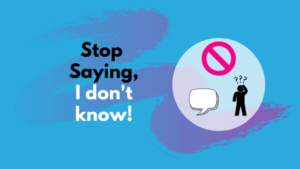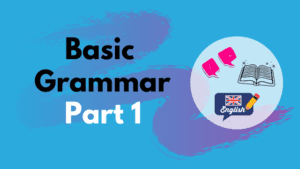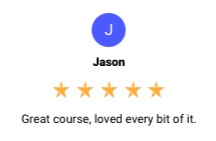English Small Talk: Start Conversations Easily
Table of Contents
What is small talk?
When we meet new people, like in shop, a queue or in a taxi, we often say a simple phrase to be friendly and break the ice.
It’s usually something trivial and unimportant, you know something like how the weather is that day.
In English, this is called small talk.
It’s not limited to strangers though, we also use it with neighbours, work colleagues and classmates to find common ground and maybe as a way to enter into deeper conversation.
Small talk is a kind of social lubrication, and really is an essential part of building relationships with other people.
Let’s find out how to create effective small talk in English.

English small talk at social events
So there you are, you have been invited to an office party, a dinner with colleagues or maybe even a wedding. In any case, you are going to have to mingle with some people you know, and probably lots of people you don’t know.
What can you talk about?
- Location
Talk about the place where the event is. You could say,
Have you been here before?
What brings you here today?
You can also talk about where you or the other person is from. People love to talk about their hometown and cities where they live, so this is a safe conversation starter. Simply ask,
Where are you from?
2. Food
Another safe topic that brings people together is food.
If you are at an event where food is served, you can ask,
How’s the food here?
It’s a nice spread, isn’t it?
It’s a nice spread, right?
3. People
When you meet people for the first time, don’t bombard them with information. They are not going to remember any of it. You will be lucky if they remember your name!
So, I always introduce myself in the simplest way possible.
Hello, I’m Keith
That’s it.
You could then ask about the host of the event or someone else you both know. For example, if it is a wedding, and Brian is getting married, you can ask,
So how do you know Brian?
Or even,
So how do you know the groom?
Of course, asking about what people do is usually a good conversation starter. For example, the following are all guaranteed to give interesting responses.
What do you do?
How did you get into that?
What are you working on at the moment?
4. Travel and Hobbies
On a more light-hearted note, people like to talk about holidays and their free time, so the following are great questions to ask;
Have you been anywhere nice recently?
What do you get up to when you not working?

English small talk when bumping into people
Very often small talk is much simpler than the examples above, and may just be a few words with a neighbour you bump into, or a shop assistant you need help from, or even a taxi driver who’s ferrying you across the city.
In this case, the weather and the person’s well-being are easy and short ways to engage in small talk.
I find the following work well, but remember you may want to adapt them according to your situation.
Nice day, isn’t it?
Looks like it’s going to rain!
How’s everything?
English small talk at the water cooler
Whether you are at work or school, the water cooler, or maybe the canteen or coffee bar, are typical places where people gather for a simple chit-chat.
There are number of topics you could talk about here, but I would say, free time, weekends, work or study projects and the latest news or gossip are all certain wins!
- Free time
Seen any good films lately?
Notice we can omit the auxiliary (have) and the subject (you).
(Have you) seen any good films lately?
Read any good books lately?
Been to any good gigs lately?
- Weekends
This is great because you can ask about both past and future weekends!
What did you get up to at the weekend?
What are your plans for the weekend?
- Work / Study
What are you working on at the moment?
What are you studying at the moment?
- News and gossip
People always want to be up to date with the latest news or gossip, and ‘be in the know’.
Questions using the present perfect are well, ‘perfect’ here, because they connect a recent event with the present.
Questions such as,
Have you been to ______ yet?
Have you seen ____?
Have you met _____?
Have you heard_____?
Here are some examples, but again, you will probably want to adapt to your own context.
Have you been to that new Spanish bar?
Notice again, we can omit the auxiliary (have) and the subject (you).
Have you been to that new Spanish bar yet?
Have you met the new sales manager/ English teacher?
Have you seen the new product we are launching?
Have you heard what happened to Brian?

Conclusion
Good small talk shows your control of a language, and your awareness of cultural issues as well.
You can be flexible but do try to be interesting as well.
At the end of the day, small talk is the first step towards building successful relationships.
Leave a comment below and let me know what are the common small talk topics or phrases in your country.
Improve your Speaking Skills with this Free Course
Crack IELTS Speaking Part 1
Learn to Speak with Confidence in Part 1 of Your IELTS Test!
⭐️⭐️⭐️⭐️⭐️
‘It’s such a great course. I’ve learned so many usages for speaking part 1.’
Zu Htet






7 thoughts on “English Small Talk: Start Conversations Easily”
It’s very helpful, but even then we’ll have needed an English environment.
Very interesting sir
I want to speak Engkish better.I speak a little English.I need you to teach me . Righ now l don’t prepaire for IElts.. I need to speak Englis like native speaker.Please call me . I waite for you!!!!
I am afraid I do not offer one on one lessons. I do have the online courses, but be aware that these are mainly for IELTS students, although there are some students who are not preparing IELTS and they love the courses too. More detials here: https://courses.keithspeakingacademy.com/courses
sir what is your email
[email protected]
Pingback: English Small Talk: Start Conversations Easily – IELTS TEST – how to prepare?